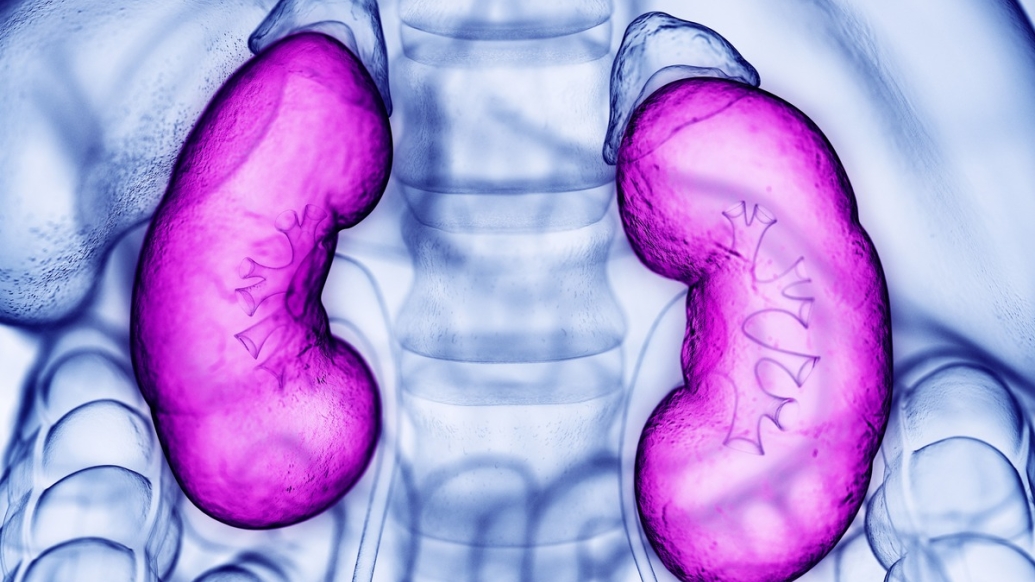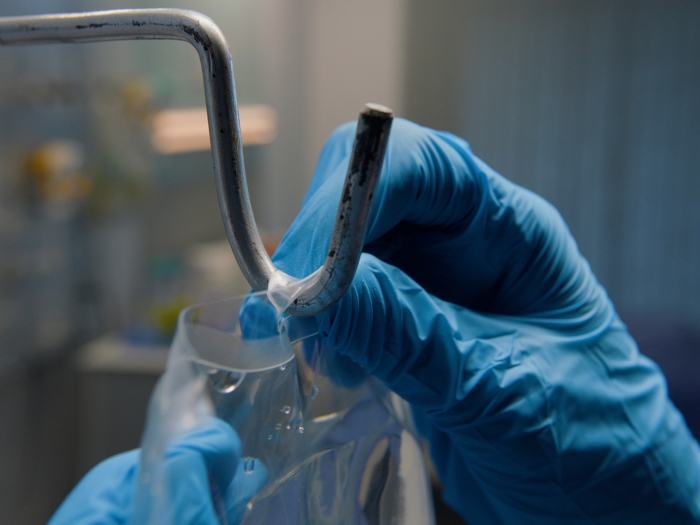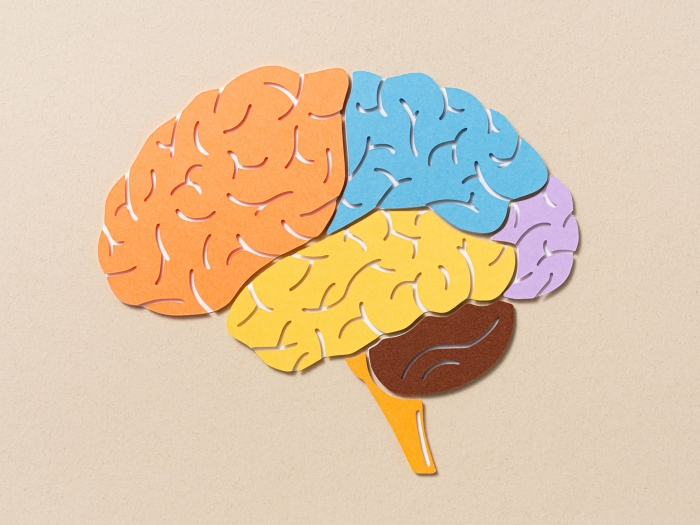A novel therapeutic may halt rapid kidney function in some type 1 diabetic kidney disease patients.
8:00 AM
Author |

Diabetes is the leading cause of kidney failure in the United States, but identifying type 1 or type 2 diabetes patients at high risk for progressive kidney disease has never had a sure science behind it.
Historically, assessing kidney function meant looking at estimated glomerular filtration rate, a calculation that determines how well blood is filtered by the kidneys, and urine albumin excretion, a urine test to detect the amount of the protein albumin, which is filtered by the kidneys. However, both tests have limited predictive power in early stage diabetes when kidney function is normal.
The therapeutic approach to both type 1 and type 2 diabetic kidney disease also follows a similar strategy, despite having different biological causes.
Now, with more advanced technology available, a multi-institution international research team sought out to understand what lipid biomarkers may predict the progression of diabetic kidney disease and how these predictors differ between type 1 and type 2 diabetes.
The case-control study, published in Diabetes Care, included more than 800 patients with type 1 diabetes since patients with type 2 have been the target of previous studies published by the lead author, Farsad Afshinnia, M.D., a nephrologist at University of Michigan Health, part of Michigan Medicine, and in the Michigan O'Brien Kidney Translational Center, part of the University of Michigan Medical School.
The case group were patients with a rapid decline in their kidney function (as measured by a substantial fall in their estimated glomerular filtration rate), compared to the control subjects who showed preserved kidney function (minimal decline of their estimated glomerular filtration rate) over a 4-year follow-up period.
Notably, Afshinnia and his team found differences in lipid predictors of diabetic kidney disease between type 1 and type 2 patients, and these biomarkers could be identified in early stage diabetes when standard markers of kidney function such as glomerular filtration rate and urine albumin excretion, are normal.
"These findings not only provide a platform for risk stratification, but also suggest the underlying mechanism of progressive kidney disease," said Afshinnia, who also works in the University of Michigan JDRF Center of Excellence. "Understanding the mechanism may be a future target for therapeutic intervention."
MORE FROM THE LAB: Subscribe to our weekly newsletter
Testing a hypothesis
In earlier studies of patients with type 2 diabetes, Afshinnia and senior author Subramaniam Pennathur, M.D., also the chief of nephrology at University of Michigan Health and director of the Michigan O'Brien Kidney Translational Center, have shown that certain lipids affect the progression of diabetic kidney disease in those with type 2 diabetes.
Unique to type 2, though, lipid alterations can be mediated by insulin resistance.
Since patients with type 1 diabetes and normal kidney function are typically sensitive to insulin, the research team anticipated that the biomarkers of kidney disease progression in type 1 would be different than those in type 2.
Specifically, Afshinnia, Pennathur and their research team hypothesized that there would be a unique pattern of circulating free fatty acids, acylcarnitines and glycerolipids between type 1 and type 2 diabetes, making clear what biomarkers in the body can cause rapid or slow decline of kidney function.
"Both types of diabetes can result in diabetic kidney disease, later requiring dialysis or transplantation," said Pennathur. "The current standard of care for patients with diabetes is to optimize their blood sugar and blood pressure control, but better biochemical markers of kidney function decline in patients with normal kidney function is lacking."
Using precision medicine in this way could accurately identify patients vulnerable for future loss of kidney function in patients with either type 1 or type 2 diabetes.
Discovering an underlying mechanism
After quantifying more than 300 lipids in the more than 800 study participants with type 1 diabetes, the researchers found 47 lipids that were significantly different between rapid and slow kidney function decliners.
This opens up a new front in fighting diabetic kidney disease by leveraging preventive strategies when kidney function can be preserved as opposed to fighting advanced disease when the damage has become irreversible.Farsad Afshinnia, M.D.
Of significant importance, the plasma concentrations of three different circulating free fatty acids, FFA 20:2, 24:3 and 18:2, were much higher in rapid decliners than in slow decliners.
The team further discovered that patients with type 1 diabetes with the potential for rapid decline of kidney function exhibit:
-
A higher plasma abundance of unsaturated free fatty acids, phosphatidylcholines, and phosphatidylethanolamines with unsaturated acyl at their sn-1 glycerol backbone, and
-
A lower plasma abundance of saturated free fatty acids, phosphatidylcholines, and phosphatidylethanolamines with saturated acyl at their sn-1 glycerol backbone.
The presence or absence of the protein albumin in the patient's urine didn't affect the altering of any lipids.
Perhaps the most noteworthy finding, though, was the potential role of phospholipase A1 and A2, enzymes that break down phospholipids to fatty acid acyl chains and lysophospholipids, being the underlying mechanism for affecting the fatty acids in rapid decliners.
"This panel of lipids is unique only for type 1 diabetic kidney disease," said Pennathur. "That suggests a unique type 1 diabetic kidney disease specific risk-marker panel. We may be able to manipulate phospholipase A1 and A2 in future studies to see if it's a potential target for preventing the progression of diabetic kidney disease at its early stages."
"What we've discovered suggests there's a panel of lipids that can predict rapid decline of kidney function at such an early stage of type 1 diabetic kidney disease when both the glomerular filtration rate and the urine albumin-creatinine ratio are normal," Afshinnia added.
He continued to say that this opens up a new front in fighting diabetic kidney disease by leveraging preventive strategies when kidney function can be preserved as opposed to fighting advanced disease when the damage has become irreversible.
Additional authors include Thekkelnaycke Rajendiran, Chenchen He and Jaeman Byun (University of Michigan); Daniel Montemayor, Manjula Darshi, Jana Tumova, Jiwan Kim and Kumar Sharma (University of Texas San Antonio); Christine Limonte and Ian DeBoer (University of Washington); Rachel Miller, Tina Costacou and Trevor Orchard (University of Pittsburgh); Tarunveer Ahluwalia and Peter Rossing (Steno Diabetes Center, Copenhagen, Denmark); Janet Snell-Bergeon (University of Colorado); Loki Natarajan (University of California, San Diego) and George Michailidis (University of Florida).
This research was supported by the JDRF Network Grant, National Institutes of Health, (K08DK106523, R03DK121941, R01DK034818, P30DK089503, P30DK081943, P30DK020572 and 1R01DK110541-01A1) and University of Michigan JDRF Center for Excellence (5-COE-2019-861-S-B).
Paper Cited: "Circulating Free Fatty Acid and Phospholipid Signature Predicts Early Rapid Kidney Function Decline in Patients with Type 1 Diabetes," Diabetes Care. DOI: 10.2337/dc21-0737
Like Podcasts? Add the Michigan Medicine News Break on iTunes, Google Podcasts or anywhere you listen to podcasts.

Explore a variety of healthcare news & stories by visiting the Health Lab home page for more articles.

Department of Communication at Michigan Medicine
Want top health & research news weekly? Sign up for Health Lab’s newsletters today!





